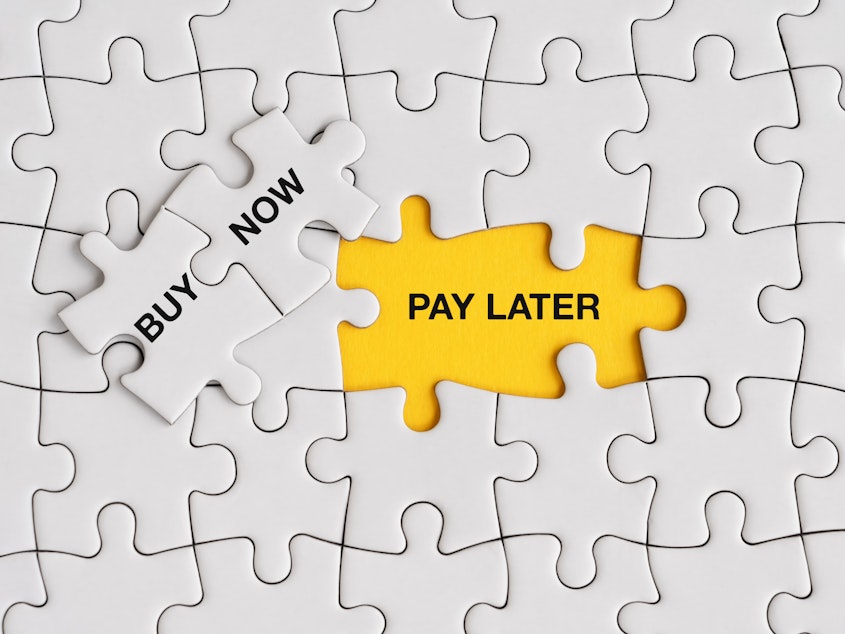Buy-now, pay-later returns and disputes are about to get federal oversight

Shoppers who use buy now, pay later should have the same protections as credit card users, the federal consumer watchdog said on Wednesday.
That means people who rely on these installment payments should get prompt refunds for returned items, receive regular billing statements and be able to pause payments during investigations into disputed charges.
That's according to the Consumer Financial Protection Bureau, which says it will begin treating buy-now, pay-later companies — such as Klarna and Affirm — as credit card providers under the Truth in Lending Act, starting in two months.
"The CFPB wants to make sure that these new competitive offerings are not gaining an advantage by sidestepping the long-standing rights and responsibilities enshrined under the law," the agency's director, Rohit Chopra, told reporters. "Given the growth in outstanding consumer credit and the rise in new forms of credit, we're going to continue to carefully monitor these markets and take action to ensure that consumers are being treated fairly."
This change does not affect how buy-now, pay-later lenders interact with credit bureaus, which the lenders are not required to report to. That has been a central distinction of this industry, allowing it to serve people with limited access to credit but also to grow without much disclosure about its scale or riskiness.
Sponsored
One in 5 households has used buy now, pay later, or BNPL, services, the Federal Reserve Bank of New York estimates. Its study found that shoppers fueling the growth tend to have limited access to credit, lower credit scores or missed credit card payments.
Where a credit card company will charge interest on purchases not paid in full at the end of the billing cycle, BNPL firms often let people split purchases into four or six installments interest free — without a credit check.
Struggles with refunds through BNPL
Returns and billing disputes have been particular pain points for shoppers using the installment plans.
Sharing their experiences with NPR, many describe having to continue paying off a purchase long after the item is returned for a full refund — meaning the BNPL provider issues the refund only after collecting all the installments, rather than canceling the remaining ones.
Sponsored
Occasionally, BNPL companies might refuse to deal directly with errant merchants, continuing to charge installments for items that never arrived or arrived damaged.
"Consumers have recourse when the merchant gives them the runaround," Chopra said. "They can dispute a charge with the [BNPL] lender, who is then required to investigate the dispute and in some cases provide a credit to the consumer. Importantly, the consumer does not have to make payments on the [BNPL] loan while the dispute is being investigated."
Similarly, BNPL companies have to reflect returned items as a credit on the shopper's loan, Chopra said. Borrowers should also receive detailed disclosures about fees, pricing structures, rights and protections.
The BNPL industry grew rapidly during the COVID-19 pandemic, and the Consumer Financial Protection Bureau has been studying it since 2021. Agency officials say they will now gather comments on whether the bureau needs to clarify its new approach or issue additional guidance or rules. [Copyright 2024 NPR]


